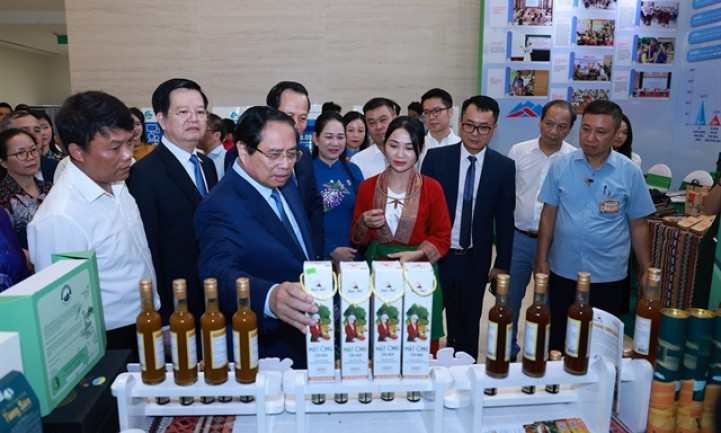UNICEF Representative commends Việt Nam’s immunisation system amid COVID-19
The Government of Việt Nam is making efforts to get the routine immunisation for children back on track, Rana Flowers, UNICEF Representative to Việt Nam said on July 19.
“We look forward to seeing Việt Nam return to the strong child and adolescent immunisation system it had built before the pandemic – the system that stood up strongly to safely and effectively deliver COVID-19 vaccines to the people,” said Flowers.
“Parents need to be assured that catching up on the recommended vaccines for their youngest is essential – if preventable deaths are to be avoided,” she added.
Monumental efforts will be required to reach universal levels of coverage and to prevent outbreaks worldwide. Inadequate coverage levels have already resulted in avoidable outbreaks of measles and polio in the past 12 months, underscoring the vital role of immunisation in keeping children, adolescents, adults, and societies healthy.
WHO and UNICEF on July 15 sounded the alarm as new data shows global vaccination coverage continued to decline in 2021, with 25 million infants missing out on lifesaving vaccines.
The percentage of children who received three doses of the vaccine against diphtheria, tetanus and pertussis (DTP3) – a marker for immunisation coverage within and across countries – fell five percentage points between 2019 and 2021 to 81 per cent.
As a result, 25 million children missed out on one or more doses of DTP through routine immunisation services in 2021 alone. This is two million more than those who missed out in 2020 and six million more than in 2019, highlighting the growing number of children at risk from devastating but preventable diseases.
The decline was due to many factors including an increased number of children living in conflict and fragile settings where immunisation access is often challenging, increased misinformation and COVID-19 related issues such as service and supply chain disruptions, resource diversion to response efforts, and containment measures that limited immunisation service access and availability.
“This is a red alert for child health. We are witnessing the largest sustained drop in childhood immunisation in a generation. The consequences will be measured in lives,” said Catherine Russell, UNICEF Executive Director.
“While a pandemic hangover was expected last year as a result of COVID-19 disruptions and lockdowns, what we are seeing now is a continued decline. COVID-19 is not an excuse. We need immunisation catch-ups for the missing millions, or we will inevitably witness more outbreaks, more sick children and greater pressure on already strained health systems.”
A total of 18 million of the 25 million children did not receive a single dose of DTP during the year, the vast majority of whom live in low- and middle-income countries, with India, Nigeria, Indonesia, Ethiopia and the Philippines recording the highest numbers. Among countries with the largest relative increases in the number of children who did not receive a single vaccine between 2019 and 2021 are Myanmar and Mozambique.
Globally, over a quarter of the coverage of HPV vaccines that was achieved in 2019 has been lost. This has grave consequences for the health of women and girls, as global coverage of the first dose of human papillomavirus (HPV) vaccine is only 15 per cent, despite the first vaccines being licensed over 15 years ago.
In Việt Nam, more than 251,000 children missed out on one or more doses of DTP through routine immunisation services in 2021 – an almost fourfold increase compared with 63,001 in 2019. At present, 52 out of 63 provinces in Việt Nam have failed to meet the required target of reaching 90 per cent of children below one year old receiving all recommended routine vaccines.
To address backsliding on routine immunisation, Việt Nam has been planning and implementing catch-up immunisation in low coverage areas. For instance, the country has conducted supplementary immunisation activities (SIAs) on MR and bOPV for children aged one to five years old. Thus, 144,448 children received one MR dose and 141,866 received additional doses of bOPV this year.






